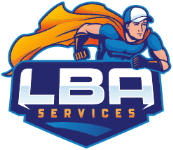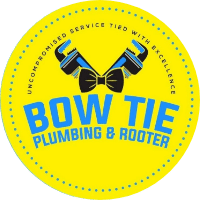Why Clients Leave Marketing Agencies—And How To Protect Yourself
If you’ve ever wondered why clients leave marketing agencies, the answer usually comes down to three things: misaligned expectations, mismatched communication, and unclear proof of progress.
The good news? Each of these risks can be prevented if you know what to look for before signing.
As part of our series on questions to ask before hiring a marketing company, we break down the five most common issues and how to avoid them—so you can choose a partner that delivers results and stays with you long-term.
1. Misaligned Expectations
Unspoken assumptions sink relationships. If outcomes, timelines, or your role aren’t defined up front, disappointment follows.
Mark Sherwin, President & Co-Founder, explains: “A lot of people come in expecting instant fixes—they’re looking for that one SEO tweak that’s going to make their phone ring off the hook. But marketing just doesn’t work that way.”
Durable success requires a long-term plan, steady iteration, and collaboration.
- Tip: Ask for a 30/60/90-day plan with milestones and clear success metrics.
2. Poor Communication
Strategy may be aligned, but cadence often isn’t. Some business owners want weekly calls; others prefer monthly rollups. A mismatch breeds frustration.
Mark notes, “The communication that one client is looking for might not work for another client. It’s important to find someone who understands what works best for you.”
If you prefer to be completely hands-off, know that no agency can succeed without your input. The best results come when you stay engaged, even if it’s just providing feedback or confirming priorities.
- Tip: Clarify preferred cadence (frequency, agenda, who attends) and confirm you’ll have access to shared dashboards.
3. Unrealistic SEO Promises
In a word, no agency can guarantee #1 rankings. Mark explains, “A lot of people still think SEO is about quick tricks—mentioning a keyword a magic number of times and you’re number one. But that’s not what Google rewards anymore.”
Modern SEO is built on helpful content, structure, local relevance, and consistency.
- Tip: Walk away from anyone promising instant rankings. Look for realistic roadmaps tied to leads and booked jobs. See the truth about SEO promises.
4. In-House vs. Agency Balance
Some growing companies wonder if they should bring marketing in-house. For many, the best solution is a hybrid: in-house for brand and strategy, agency support for execution and specialized skills.
It isn’t always an either/or decision — many successful companies blend in-house resources with agency expertise, creating a hybrid setup that balances control with specialized support. Mark shares, “It’s all about finding the balance.”
- Tip: Ask if the agency is flexible—able to coach, support, or handle certain channels while your internal team leads.
5. Team Turnover
Turnover happens at any agency. The key is how it’s handled. Well-documented accounts and engaged clients make transitions smooth.
“Change is inevitable. Our clients who stay engaged adapt best when team changes happen. The client knows their goals and they stay in the driver’s seat,” Mark says.
- Tip: Ask about documentation, backup coverage, and how account strategy is maintained during staff handoffs.
Why Some Clients Come Back
Sometimes, businesses test another option and later return for consistency, support, and reporting.
“A lot of times, people realize that they can’t replace the relationship we have—and we welcome them back with open arms,” Mark says.
Often, they discover that cheaper or trendier options can’t replace steady communication, reliable reporting, and proven results. Those are the things that make long-term partnerships valuable.
Choose Clear Expectations, Open Communication, And Adaptability
If you’re choosing a new marketing agency, the best safeguard is alignment on goals, cadence, and accountability from day one.
If you want a partner that sets guardrails and grows with you, let’s talk.
















